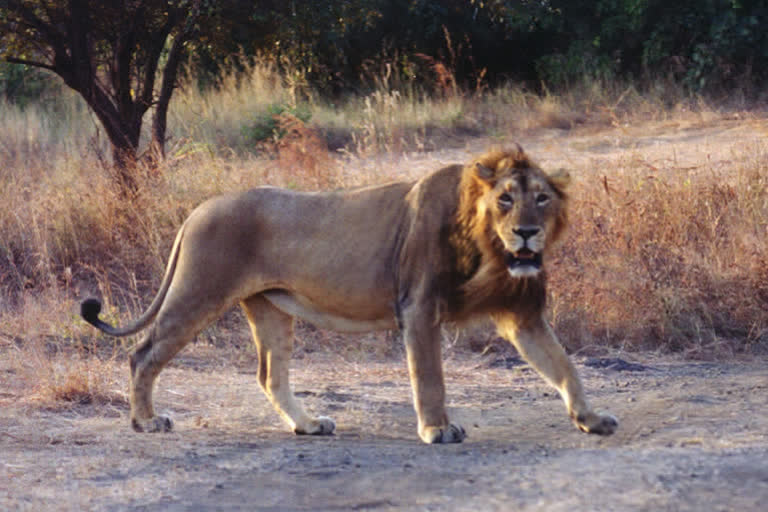Junagadh: At least five lions have died in Gir forests, the lone abode of the Asiatic lions situated in the Saurashtra region of Gujarat, in the past 15 days. Though the exact reason for the lion deaths will be known only after receiving the lab test results, animal lovers suspect that the recent deaths of the endangered species from East, West and Bruhadgir ranges of Gir have been caused by a disease called Babesiosis, a protozoan parasite.
D T Vasavada, chief conservator of forests (Wildlife), Junagadh told ETV Bharat that the forest department has sent samples of the dead lions to laboratory for analysis. "Five lions have died in the past 15 days. The incidents of deaths have been reported from different ranges. As far as we know, the lions did not die due to any such infectious disease," said the officer.
D T Vasavada, chief conservator of forests (Wildlife) What is Babesiosis?
Babesiosis is a parasitic enzootic disease caused by blood protozoa Babesia that attacks the red blood cells in a lion's body, causing anemia and making it susceptible to other diseases. After trypanosomes, Babesiosis is considered one of the most significant tick-borne infectious diseases in both domestic and wild mammals. In rare cases, babesiosis infection may occur in humans.
The recent deaths have been reported mostly from the Moch Revenue area. Farmers graze their livestock in this area. It is suspected that the disease may have spread to lions after consuming infected animals. In the early months of 2020, around 20 lions in Gir forests were killed following an outbreak of Babesiosis.
In 2018, a combination of Canine Distemper Virus (CDV) and Babesiosis killed more than 30 lions in the Dalkhania range of Gir. Rest 31 infected lions were treated at the Jamwala Animal Care Center by specialised veterinarians from Delhi as well as Uttar Pradesh. Later, the government imported vaccines from the United States and sought the help of international veterinarians to vaccinate almost all the lions in the Gir forests and other protected areas. The lions were released into the wild after they recovered from the infection.
Also Read:Lioness dies of COVID-19 at Chennai zoo
